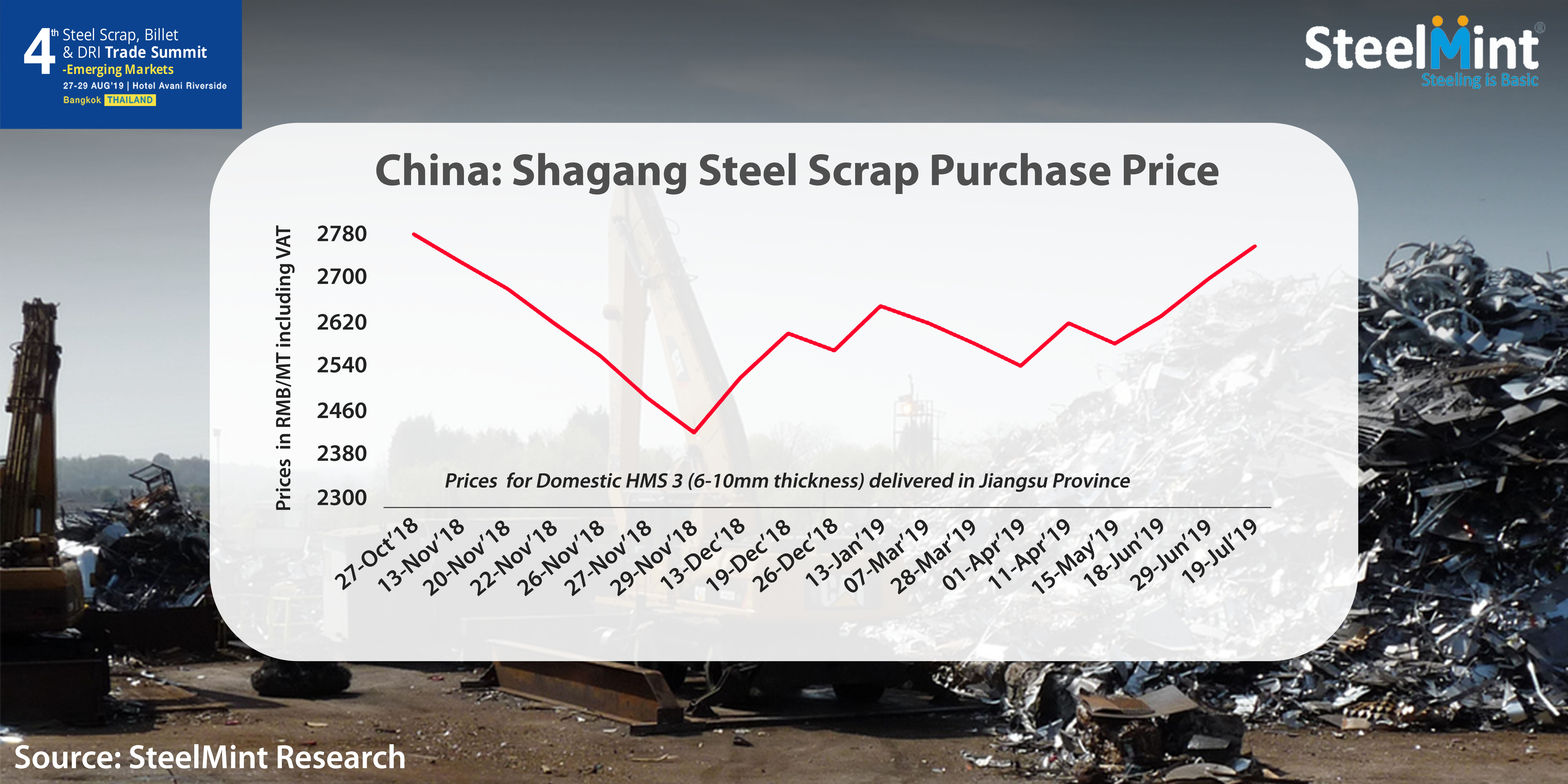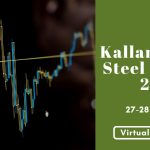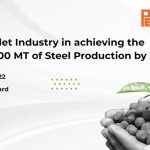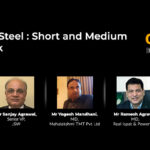
China, the world’s largest ferrous scrap consumer, has witnessed a jump in its domestic ferrous scrap prices to above USD 400/MT, a record new 2019 high following supply tightness amid seasonal issues, high utilisation rates for electric arc furnaces (EAFs) and new restrictions on scrap imports that took effect from July 1.
Shagang Jiangsu price hike
Eastern China’s largest private ferrous scrap consumer and EAF steelmaker, Shagang Jiangsu Steel Group, announced the price hike for all grades of domestic steel scrap procurement by RMB 60/MT (USD 9) effective from July 19, 2019. The new price of HMS 3 scrap stands at RMB 2,760/MT (USD 403) delivered to headquarter works situated in Zhangjiagang, north of Shanghai, in China, inclusive of 13% VAT. Shagang Steel’s total annual production capacity crossed the 100-MnT mark with 31.9 MnT iron, 39.2 MnT steel and 37.2 MnT rolled products.
Deterring demolitions
The Chinese government has continued new rounds of investigations at all major steelworks to ensure environmental protection policies deter demolition of buildings and vessels that generate scrap. Tightening measures on air pollution emphasised on production stoppage for sintering machines. Thus, most of the steelmakers are looking to increase the use of steel scrap in steelmaking.
On the other hand, scrap supplies have been reduced due to high temperatures while the rainy weather is reducing scrap collection and transportation. Higher demand and scant supplies have sent scrap inventories at processing plants to low levels, leading to a general anticipation that local scrap prices in China will remain firm over the second quarter of 2019.
Chinese scrap prices jump
According to prices maintained with SteelMint, it has been observed that Chinese steel scrap prices have jumped by RMB 210/MT (USD 31) or around 7-8% since mid-May. Prices have climbed the highest so far since November 2018.
Rising costs of BF steelmaking encourage EAF use. Currently, China’s EAF steel mills are producing steel with considerable margins against BF steelmakers. Rising costs of competing feedstocks like iron ore and metallurgical coke have encouraged use of scrap. China’s iron ore prices remained in the range USD 115-120/MT as the main cost increase for BFs. On the other hand, increasing scrap prices also raise the costs of BF mills that use 10-20% scrap.
Steel scrap imports fall 86% in Jan-May: Sharp fall in imports of ferrous scrap into China has impacted supplying countries to divert their flow to other countries. China’s ferrous scrap imports fell by 86% to 111,507 MT during January-May, 2019 against 776,133 MT during the same period last year. Total imports in 2018 were recorded at just 1.34 MnT, the lowest since 2010. The trend is expected to continue as China reclassified certain categories of scrap steel as restricted raw materials from July 1, 2019.
Steel scrap exports nosedive in 2019: During January-May, 2019, China’s ferrous scrap exports were recorded at just 2,023 MT, down 99% Y-o-Y against 323,941 MT recorded in 2018.
To know more on Chinese steel, scrap & the EAF market 2020, book your seat at SteelMint’s 4th Steel Scrap, Billet & DRI Summit and get a chance to hear views of Hongmei Li, Head of Editorial, Mysteel Global. The conference is being organised over 27th-29th August, 2019 in Bangkok, Thailand.





































